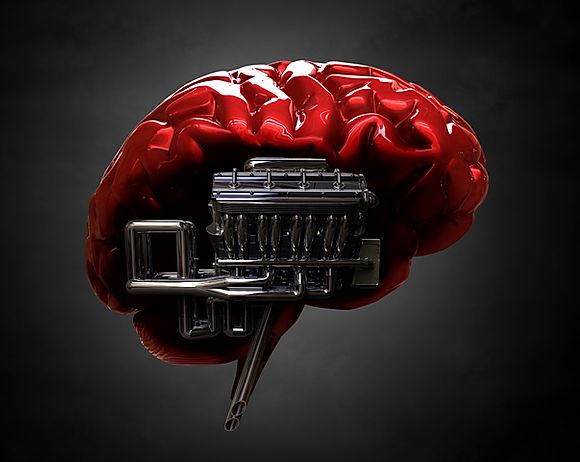Think of the brain as a complex engine, like that of a race car, with a vast number of dynamic but delicate, interconnected parts that monitor and control itself and a larger machine (the body). This engine operates at an incredibly high speed, demands a lot of its component parts, and works at an optimum level only when all parts are functioning as designed and in orchestration with each other. If a single component part of this engine is not functioning properly, the entire engine and the machine it controls can fall into disrepair or fail to function at all.

If you were to open up this engine and look inside, you would find (if you had a microscope) a vast web of microscopic-size wires thoroughly connected to each other, and packed densely inside a space about the size of a football. These are your brain neurons and you have about 100 billion of them that form over 1,000 trillion connections. Each neuron has as many as 15,000 connections to other neurons. How vast is this web of wires? Well, if you could remove your 100 billion neurons and line them up one to another, the line would stretch over 600 miles. How many is 1,000 trillion of anything? Enough that if you were to count them 1 per second, it would take you 3,171 years.


